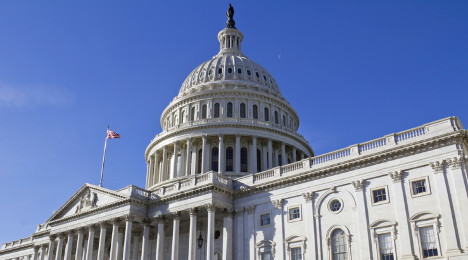After taking a trio of actions involving more than two dozen dealerships in the span of about a year, New York attorney general Eric Schneiderman wielded his enforcement powers again this week in association with F&I activities.
Schneiderman announced a $298,000 settlement with Nissan of New Rochelle for what the Empire State’s top law enforcement agent said was deceptively charging hundreds of consumers for an “unwanted and bogus anti-theft product that cost up to thousands of dollars per consumer.”
The New York AG asserted this after-sale product often was added onto the final cost of the vehicle without the consumer’s knowledge or consent, after the customer had agreed upon the purchase price of a vehicle but before the installment contract was finalized.
Following a consumer complaint in August 2015 that Nissan of New Rochelle had fraudulently sold an after-sale product, the office commenced an investigation into the dealership’s practices. The investigation found that Nissan of New Rochelle sold hundreds of consumers a product called Total Loss Protection, which was meant to serve as a theft deterrent.
The investigation noted that consumers were charged amounts ranging from $215 to over $5,000. In many instances, Nissan of New Rochelle added this fee onto the final sales price without the knowledge or consent of the consumers. As a result, the final price paid by the consumers was inflated by the amount charged for the after-sale product.
Furthermore, officials determined Nissan of New Rochelle failed to clearly disclose the nature of the after-sale product to its customers. The “Total Loss Protection” or “Total Loss Protection Guarantee” product was advertised as a permanent etch or engraving of the vehicle’s VIN, or a registered serial number, on the windows of the vehicle — supposedly to deter theft. However, officials indicated Nissan of New Rochelle did not actually etch the VIN onto the windows of the vehicles.
Instead, for some vehicles, the attorney general’s office found the dealership placed sticker decals with assigned registration numbers on the inside of the door or door-jamb where no one could see them, thus having no deterrent effect. For other vehicles, the dealership did not even provide stickers or decals, according to the investigation.
New York officials went on to mention consumers were also led to believe that there would be a guaranteed credit up to either $3,000 or $5,000 toward the purchase of a new vehicle should their car be stolen. However, there were numerous conditions and limitations — such as that the credit would not be applied if it eliminated the dealership’s profit on the sale — which rendered the “credit” illusory, according to officials.
The AG’s office added that only one consumer ever received a credit through the Total Loss Protection program.
Under the agreement, Nissan of New Rochelle will refund $276,127 to 298 consumers who were charged an add-on fee for the Total Loss Protection product. In addition to restitution, the dealership will also pay $22,084 in penalties, fees, and costs to the State. The dealership has also agreed to certain reforms to its sales practices, including:
—Fully disclosing that any and all after-sale services or products are optional and that the price is negotiable
—Clearly explaining to each consumer any and all after-sale services or products being offered by the dealership
—Only adding an after-sale service or product to the final bill with the knowledge and full consent of the consumer
“Consumers should not have to worry that they are being scammed into adding on bogus products and services when they purchase a car,” Schneiderman said.
“Buying a car is already a major investment for many families, and tacking on thousands of dollars extra can become a significant financial burden,” he continued. I am pleased that we are able to return hundreds of thousands of dollars in restitution to the nearly 300 consumers who were scammed and defrauded.”
Last summer, a stretch of actions by Schneiderman concluded with a settlement involving another Nissan store. Lia Nissan of Saratoga was required to pay $101,986 in restitution to 119 consumers who were charged illegal fees and/or subjected to a variety of deceptive sales and advertising practices
While some lawmakers on Capitol Hill continue to work toward a major restructuring or perhaps even a complete dismantling of the Consumer Financial Protection Bureau, one of the leaders of the American Recovery Association cautioned the industry about developments this summer in Pennsylvania by the attorney general to establish a division similar to this federal agency.
In fact, the individual appointed to lead this unit within the Keystone State’s attorney general’s office actually was the fourth employee ever to come aboard at the CFPB.
To recap, back in July, Pennsylvania attorney general Josh Shapiro created what he called a consumer financial protection unit. Leading this operation is Nicholas Smyth, who before joining the CFPB was part of a team at the U.S. Treasury Department that drafted and revised the CFPB’s enabling act, the Consumer Financial Protection Act of 2010 (Title X of the Dodd-Frank Act).
Smyth brings significant expertise in auto finance to this post in Pennsylvania. At the CFPB, Smyth led the investigation of Drivetime Automotive Group, which resulted in an $8 million settlement related to allegations associated with what the bureau deemed to be harassing debt collection calls and providing inaccurate credit information to credit reporting agencies.
“Protecting the public from financial scams is a key priority of mine, and Nick Smyth will help us expand our capacity to bring complex cases against financial companies that try to rip off Pennsylvanians,” Shapiro said.
“I am honored to join the attorney general’s terrific consumer protection team,” Smyth added. “The Consumer Protection Bureau saves Pennsylvania families millions of dollars each year, and I am excited to contribute to this great work.”
All of the developments caught the attention of David Kennedy, who is vice president and director of compliance at the American Recovery Association. Kennedy, who also is the chief executive officer of First Credit Resources, cautioned how this new enforcement unit could impact repossession agencies and other third-party providers that participate in recoveries.
“A lot of you thought you would never see an agent from the CFPB or a CFPB-type agency because of your size. Well, I can assure you now, if you are located in Pennsylvania, your chances just went from zero to ‘see you next year,’ maybe even late this year,” Kennedy said in a message distributed by ARA and obtained by SubPrime Auto Finance News.
“We all know how this is going to go,” he continued. “When one state does it, the other states will watch to gauge the success and then jump on the band wagon. All your small clients who have not placed the same importance on compliance as ARA has done and have continued to use off-duty police, constables, sheriffs, or just unlicensed repossessors, have much to fear.
“Our loyal members who have taken advantage of the ARA webinars and compliance testing, have instituted the policies and procedures we have been going over for at least three years, have taught their street-level employees the information, and have created the culture of compliance that we as an association have been constantly and consistently talking about, have nothing to fear,” Kennedy went on to say.
For more details about compliance and other operational resources at ARA, go to www.repo.org.
Automotive Compliance Consultants — listed among the SubPrime 175 published by SubPrime Auto Finance News as well as the Power 300 published in Auto Remarketing — has a new owner, according to a news release distributed on Tuesday.
KPA Services, a provider of environmental health and safety (EHS), HR management, and F&I technology-enabled services and software as a service (SaaS) solutions, announced the acquisition of Automotive Compliance Consultants (ACC), which provides a comprehensive dealership compliance program combining software and in-person consulting, with an emphasis on F&I, privacy, fair lending, and EHS compliance.
KPA has more than 30 years of experience working with multiple industries, including dealerships, collision/repair, manufacturing, insurance brokers, distribution, food and beverage, and transportation to provide EHS, HR management and F&I solutions. KPA provides clients with online, onsite and on-call resources to effectively train staff; protect assets, reduce losses and avoid penalties; enhance HR workflow; and achieve environmental, safety and HR compliance.
The companies highlighted ACC’s extensive dealership F&I expertise and client base coupled with KPA’s 6,000 dealership clients, creates an organization with compliance and workflow solutions for the dealership market.
Officials explained the combined company can provide clients with the benefits of an expanded team of over 100 EHS, F&I and HR field experts located throughout the U.S., who bring an average of more than 15 years of regulatory experience. This knowledge base is designed to complement the combined company’s online dashboards, SaaS-based data analytics solutions and closed-loop audit processes.
“ACC and KPA share the vision and expertise to deliver effective dealership compliance solutions,” KPA chief executive officer Vane Clayton said. “We focus on a variety of industries but we built our business on the automotive dealership market and feel we now have a national F&I compliance team and enhanced solution to increase the value we bring to our large dealer client base, with a comprehensive compliance solution.”
Automotive Compliance Consultants president and CEO Terry Dortch added, “Joining forces with the KPA team is a great move forward for ACC.
“Our vision has always been to provide a turnkey compliance solution for dealerships. The additional expertise, content and development resources that KPA brings will result in an unmatched compliance program for the dealership client,” Dortch went on to say.
As the company acknowledged an inquiry from the Consumer Financial Protection Bureau, Credit Acceptance leadership discussed its sales force during a good portion of its latest conference call with investment analysts.
Credit Acceptance shared as a part of its second-quarter finance report that the company expanded its sales team by “roughly” 20 percent year-over-year in an effort to broaden its active dealer network, which stood at 7,635 as of June 30. On the same date a year earlier, the figure stood at 7,181.
The company classifies active dealers as ones who have received funding for at least one contract during the quarter.
Chief executive officer Brett Roberts described the volume of active dealers joining the company’s network as “OK,” acknowledging the 910 stores to sign up during the second quarter marked a 13.9-percent improvement versus the same quarter a year ago.
“But sequentially we had a decline in active dealers,” Roberts said. “So I guess the goal, obviously, is to sign up more dealers than we’re losing. We didn’t do that in Q2, but we hope to do that in the future.”
The company also noted its dealer attrition rate deteriorated slightly in Q2, rising to 21.5 percent. A year earlier, the rate stood at 17.5 percent.
Credit Acceptance defines attrition according to the following formula: Decrease in consumer loan unit volume from dealers who have received funding for at least one dealer loan or purchased loan during the comparable period of the prior year but did not receive funding for any dealer loans or purchased loans during the current period divided by prior year comparable period consumer loan unit volume.
Roberts pointed out that Credit Acceptance’s current sales team is double the size of what it had been a few years ago, and the company is expecting to “increase it a little bit more.”
Roberts told conference call participants, “I think if you look at the last time we increased the sales force, it took us about two years to roughly double the sales force, and really, almost three years before productivity got to where it was before we started the expansion. So it was overall about a five-year process to double the sales force.
“We’re not trying to double it this time, and hopefully, we’ve learned a little bit from the first time. But it’s still more of a long-term driver than a short-term driver,” he continued.
With a larger team comes more expenses. Credit Acceptance reported for Q2 that its 11.9 percent or $6.5 million increase in operating expenses stemmed from an increase in salaries and wages expense of $2.6 million, or 8.6 percent. This was primarily related to our servicing function as a result of an increase in the number of team members along with an increase in sales and marketing expense of $2.5 million, or 21.0 percent, due to an increase in the size of its sales force.
Roberts explained that having a robust sales force can help Credit Acceptance navigate the challenges of a competitive auto-finance landscape.
“Our outlook is that we're planning on the current difficult environment lasting for the foreseeable future,” Roberts said. “And if that turns out to be too pessimistic, then that’s great. But that’s what we’re planning for. And so I guess we look at the numbers. We feel like our chances of growing are a lot better if we have a little bit larger sales force, so that's what we're working toward.
“We had two quarters of negative unit volume change. And this quarter was up, but it was only up 1 percent,” he continued. “I don’t think that the additions to the sales force really added much to that at this point. They’re very new. They’re still getting up to speed. And I think, again, the increase in the sales force is something that will pay off next year or the year after. Probably not this year.”
Overall performance
As Roberts mentioned, Credit Acceptance generated a 1-percent year-over-year lift in origination volume during the second quarter. The amount financed grew by a larger amount, 7.1 percent year-over-year.
“Dollar volume grew faster than unit volume during the second quarter of 2017 due to an increase in the average advance paid per unit,” the company said. “This increase was the result of an increase in the average size of the consumer loans assigned primarily due to an increase in the average initial loan term and an increase in purchased loans as a percentage of total unit volume, partially offset by a decrease in the average advance rate due to a decrease in the average initial forecast of the consumer loans assigned.
“While we were able to grow unit volume modestly during the most recent quarter after two quarters of declines, our overall progress in growing unit volumes has slowed considerably over the last six quarters,” Credit Acceptance officials continued. “This trend reflects the difficulty of growing the number of active dealers fast enough to offset the impact of the competitive environment on attrition and per dealer volumes.
“In addition, in response to the decline in forecasted collection rates experienced in 2016, we adjusted our initial collection forecasts downward during 2016. While the adjustments have been modest, we believe these adjustments have had an adverse impact on unit volumes,” the company went on to say.
All told, Credit Acceptance reported that its Q2 consolidated net income came in at $99.1 million, or $5.09 per diluted share, up from $84.9 million, or $4.17 per diluted share, for the same period in 2016.
After seeing the top-line metrics, the investment community pushed Roberts for some clarity on how Credit Acceptance portfolio vintages are performing in an effort to spot future trends.
I think that the clearest number to start with if you're trying to understand loan performance is the net cash flow change for the quarter that’s disclosed,” said Roberts, who noted that the company’s Q2 total net cash flow change was $8.8 million. “It’s a positive number, but it’s obviously a very small one.
“The total undiscounted cash flows that we’re attempting to forecast are somewhere around $5.8 billion,” Roberts continued. “So when you have an $8.8 million move, that’s basically flat.”
After the analyst rephrased the question, Roberts added, “Again, I think the main takeaway is if you’re looking at $5.8 billion in cash flows we’re trying to forecast, if you look at the results for this quarter or really over the last six quarters or even longer than that, the cash flows have been remarkably stable. So I think that's a good thing, and that’s really the main takeaway
CFPB matters
Credit Acceptance stated its quarterly filing with the Securities and Exchange Commission that the company now is contending with an inquiry from the CFPB along with ongoing actions involving the Federal Trade Commission and Maryland’s attorney general.
“As of June 2017, we were informed that the Consumer Financial Protection Bureau’s Office of Fair Lending and Equal Opportunity is investigating whether the company may have violated the Equal Credit Opportunity Act and Regulation B,” Credit Acceptance said in its SEC filing.
“We are cooperating with the inquiry and cannot predict the eventual scope, duration or outcome at this time. As a result, we are unable to estimate the reasonably possible loss or range of reasonably possible loss arising from this inquiry,” the company continued.
During the conference call, Wall Street observers asked Roberts to elaborate about what the CFPB inquiry is entailing.
“We don’t have a lot to add to what's in the (filing),” Roberts said. “The CFPB is fairly sensitive regarding disclosures of ongoing matters, so we try carefully to walk the line between our obligations to the SEC and to shareholders and the sensitivities of the CFPB. So I won’t try improve upon what we put in the (filing).”
The filing indicated that the inquiry from the FTC stems from Credit Acceptance allowing dealers to use GPS and starter interrupt devices while Maryland’s attorney general is looking into the company’s repossession and sale policies and procedures within the state.
LenderLive Services, a division of LenderLive Holdings, announced on Tuesday that it will now provide expanded compliance services through a new line of business: LenderLive Compliance Solutions.
The company highlighted the new entity will offer both bundled and a la carte services to vehicle finance companies, credit unions, community and regional banks. Maria Moskver, general counsel and enterprise compliance officer for LenderLive, will lead LenderLive Compliance Solutions.
During the past two decades, LenderLive has developed significant in-house expertise in regulatory compliance, operational controls, systems and industry best practices. The company maintains one of the most extensive template libraries, including documents relating to vehicle default for all 50 states. The library contains pre- and post -repossession notices required by the Uniform Commercial Code and other federal and state laws, including right to cure notices, and notices of sales and deficiency.
LenderLive will continue to offer its Compliance Solutions bundled with fulfillment and document services to primarily enterprise clients.
In addition, LenderLive Compliance Solutions will now give vehicle finance companies the option to access its compliance solutions on an a-la-carte basis. This flexible approach can allow auto finance companies, credit unions, community and regional banks to supplement their internal compliance resources with LenderLive’s expertise. These services include:
• Ongoing regulatory monitoring and alerts for regulatory changes at the federal and state level.
• Access and use of LenderLive’s extensive state and federal template library.
• Ongoing template updates and review services.
• Client-focused webinars covering vehicle finance regulations, judicial developments and decisions.
• Custom research and consulting on regulatory compliance issues, including operational and best practice perspectives, to accelerate implementation times.
“Historically, financial institutions have turned to LenderLive for turnkey solutions that have reduced costs and kept them compliant,” said LenderLive chief executive officer Rob Clements, who joined the company on July 18 after more than two decades at EverBank Financial Corp.
“What we are doing now is leveraging the embedded expertise we’ve developed and providing financial institutions these services in two distinct ways, helping to create greater efficiencies based on specific needs,” Clements continued.
Clements arrived at LenderLive at the same time as John Surface was named as president and chief operating officer of the company. Clements and Surface also are a part of the company’s board of directors.
LenderLive founder Rick Seehausen moved into the role of vice chairman.
“After more than two decades leading EverBank, I’m incredibly excited to have this opportunity to use my experience in financial services to lead LenderLive during this next phase of its growth and evolution. LenderLive is well positioned to capitalize on the ever-changing dynamics of the financial services industry, and I am pleased to be working with my long-time colleague and friend, John Surface, to continue to build LenderLive for the future,” Clements said.
“Rick Seehausen has created a great company with a strong management team that has successfully grown in size, geography, product scope, and client base. We look forward to working with Rick in his role as vice chairman and founder to ensure a seamless transition and continued success,” Clements continued.
Surface added, “Over the last few years, LenderLive has diversified and strengthened its product offering, expanded its client base and built a business with considerable expansion possibilities. This is an ideal situation that allows us to bring our experience building and transforming EverBank to another ascending company with significant momentum and growth potential. I look forward to working with Rob and our new colleagues to continue that upward trend.”
After leading and growing LenderLive for nearly two decades, Seehausen has been interested in finding strong, reputable leadership to guide the company through the next chapter in its evolution.
“Over the past 18 years, we have built LenderLive into a leading provider of fulfillment and critical services for the financial services industry. I couldn’t be prouder of all that we have accomplished together, which has put the company in a great position to take the next step in its development,” Seehausen said.
“Given our ambitions to grow the company meaningfully, both organically and through acquisitions, it is clear that now is the right time to bring in new leadership expertise to guide the company to the next level,” he went on to say.
“Rob and John are well-respected, talented professionals who I trust will accelerate LenderLive’s upward trajectory and carry out the growth plans that we’ve put in place over the last few years,” Seehausen added.
Now Reynolds and Reynolds only has seven states to go to cover all of the U.S. with resources from its LAW F&I Library — a comprehensive catalog of standardized, legally reviewed finance and insurance (F&I) documents for franchised dealers.
Reynolds recently released the LAW F&I Library into three more locations — Nebraska, New Hampshire and Rhode Island — lifting the company’s compliance footprint to 43 states. These documents can be used by dealership F&I offices to complete the vehicle sales process with buyers.
“We are pleased to announce the availability of the LAW F&I Library in Nebraska, New Hampshire and Rhode Island,” said Jerry Kirwan, senior vice president and general manager of Reynolds Document Services. "Dealers will continue to face growing expectations from consumers for a more engaging and smoother car-buying experience. The documents in the LAW Library are written in consumer-friendly language to help create a more efficient, transparent and understandable F&I process in every transaction.
“By increasing the efficiency of the F&I process, dealers can deliver a better customer experience for buyers at the dealership,” Kirwan continued.
Kirwan also noted LAW brand documents can help dealers keep pace with regulatory developments in automotive because the documents in the LAW F&I Library are regularly reviewed and updated for legal sufficiency. Reynolds' industry-leading forms specialists manage the review alongside Reynolds' outside legal partners.
In addition, the printed documents in the LAW F&I Library are available in digital format, which can help facilitate the conversion to laser-printed forms and e-contracting transactions. Reynolds Document Services maintains licensing agreements with all major providers of electronic F&I (e-F&I) solutions.
Now with Nebraska, New Hampshire and Rhode Island in the offering portfolio, other states where Reynolds resources are available include: Alabama, Alaska, Arizona, Arkansas, California, Colorado, Delaware, Georgia, Hawaii, Idaho, Illinois, Indiana, Iowa, Kentucky, Louisiana, Maine, Maryland, Massachusetts, Michigan, Mississippi, Missouri, Montana, Nevada, New Jersey, New Mexico, New York, North Carolina, Ohio, Oklahoma, Oregon, Pennsylvania, South Carolina, Tennessee, Texas, Utah, Vermont, Virginia, Washington, West Virginia and Wyoming.
Arriving within two weeks of reporting its auto financing originations dropped 45 percent year-over-year, Wells Fargo late on Thursday announced a plan to remediate auto finance customers of Wells Fargo Dealers Services who may have been financially harmed due to issues related to auto collateral protection insurance (CPI) policies.
Wells Fargo explained that it reviewed policies placed between 2012 and 2017 and identified approximately 570,000 customers who may have been impacted and will receive refunds and other payments as compensation.
In total, the bank said approximately $64 million of cash remediation will be sent to customers in the coming months, along with $16 million of account adjustments, for a total of approximately $80 million in remediation.
Starting in August, Wells Fargo said it will proactively reach out to impacted customers with letters and refund checks.
“In the fall of last year, our CEO and our entire leadership team committed to build a better bank and be transparent about those efforts,” said Franklin Codel, head of Wells Fargo Consumer Lending, which includes the dealer services unit. “Our actions over the past year show we are acting on this commitment.”
The moves arrived after Wells Fargo reported its auto finance originations came in at $4.5 billion during second quarter, down 17 percent from prior quarter and down 45 percent from prior year. The bank said “proactive steps to tighten underwriting standards resulted in lower origination volume.”
Whenever originated, Wells Fargo indicated that customers’ vehicle installment contracts require them to maintain comprehensive and collision physical damage insurance on behalf of the bank throughout the term of the contract. As permitted under those contracts, Wells Fargo would purchase CPI from a vendor on the customer’s behalf if there was no evidence — either from the customer or the insurance company — that the customer already had the required insurance.
The bank reiterated that CPI insurance protects against loss or damage to a vehicle serving as collateral to secure an installment contract and helps ensure that borrowers can pay for damages to a vehicle.
In response to customer concerns, Wells Fargo said that beginning last July it initiated a review of the CPI program and related third-party vendor practices. Based on the initial findings, the company discontinued its CPI program in September.
Since then, the company has gone through a comprehensive review using independent consultants to ensure the remediation plan it develops addresses customers’ situations in a thorough and thoughtful way.
Wells Fargo’s review determined that certain external vendor processes and internal controls were inadequate. As a result, customers may have been charged premiums for CPI even if they were paying for their own vehicle insurance, as required, and in some cases the CPI premiums may have contributed to a default that led to their vehicle’s repossession.
“We take full responsibility for our failure to appropriately manage the CPI program and are extremely sorry for any harm this caused our customers, who expect and deserve better from us,” Codel said. “Upon our discovery, we acted swiftly to discontinue the program and immediately develop a plan to make impacted customers whole.”
Wells Fargo already has been providing CPI-related refunds to some customers and, beginning in August, will send letters and refund checks to customers who are due additional payments. The process is expected to be complete by the end of the year and is as follows:
—Approximately 490,000 customers had CPI placed for some or all of the time they had adequate vehicle insurance coverage of their own.
“We refunded the premium and interest for the duplicative coverage at the time the customer made us aware of their other insurance,” Wells Fargo officials said. “These customers will receive additional refunds of certain fees and some additional interest. Refunds for this group total approximately $25 million.
—In five states that have specific notification and disclosure requirements, approximately 60,000 customers did not receive complete disclosures from our vendor as required prior to CPI placement.
In these cases, even if CPI was required, customers will receive a refund including premiums, fees and interest. Refunds for this group total approximately $39 million.
—For approximately 20,000 customers, the additional costs of the CPI could have contributed to a default that resulted in the repossession of their vehicle.
Those customers will receive additional payments as compensation for the loss of their vehicle. The payment amount will depend on each customer’s situation and also will include payment above and beyond the actual financial harm as an expression of our regret for the situation. Refunds for this group total approximately $16 million.
For each of these categories, Wells Fargo added that the bank will also work with the credit bureaus to correct customers’ credit records, if applicable.
Also as an outcome of this review, Wells Fargo has taken additional steps to tighten oversight of third-party vendors in dealer services.
“This is consistent with a broader effort to strengthen how the dealer services business manages risk and serves customers, which has included other recently announced actions to centralize operational functions and provide more consistency for customers, tighten credit standards and implement a new structure,” Wells Fargo officials said.
CounselorLibrary.com, publisher of automobile financing and leasing legal compliance services and part of the Hudson Cook portfolio, announced that it has updated its popular CARLAW F&I Legal Desk Book. Winner of the Axiom Business Book Award, the book gives readers 363 things to know about dealer finance laws and regulations.
Now in its seventh edition, CARLAW F&I Legal Desk Book — The Answer Book for Finance and Insurance Professionals, presents a law-by-law, regulation-by-regulation guide through the legal maze that dealers face every day. Authored by Thomas Hudson, Michael Benoit, Ralph Rohner and the attorneys at Hudson Cook, this new edition reflects the latest updates to the federal laws and regulations affecting F&I practices.
“Formatted in a straightforward Q and A design, (the book) addresses many of the everyday compliance issues dealers face and includes links to the actual laws and regulations discussed in each chapter,” the publisher said.
The 390-page book is designated as the official textbook for the Association of Finance and Insurance Professionals’ Certified F&I Professional Program, and is available for $49.95 (plus shipping and handling) by going to this website.
House and Senate lawmakers wasted little time in using Congressional Review Act (CRA) authority to start an effort to stop the Consumer Financial Protection Bureau’s final rule prohibiting the use of class action waivers in arbitration clauses.
The CRA permits Congress to overturn an agency rule within 60 legislative days after an agency has submitted the rule to Congress, with a simple majority vote. The rule appeared in the Federal Register on Wednesday, meaning that barring a literal act of Congress, this regulation is effective on Sept. 18.
In the House, a resolution was sponsored by Rep. Keith Rothfus, a Pennsylvania Republican.
“As a matter of principle, policy and process, this anti-consumer rule should be thoroughly rejected by Congress, and I applaud Congressman Rothfus for leading the effort in the House to do just that,” said House Financial Services Committee Chairman Jeb Hensarling, a Texas Republican.
“In the last election, the American people voted to drain the D.C. swamp of capricious, unaccountable bureaucrats who wish to control their lives. I can think of no better example of such bureaucrats than those at the CFPB. This CRA is a critical step towards fulfilling our promise to the American people and truly protecting consumers,” Hensarling said.
Sen. Mike Crapo, an Idaho Republican and chairman of the Senate Banking Committee, is leading the charge with his Republican colleagues on a resolution from Congress’ upper chamber.
“Members of Congress previously expressed concerns with the proposed version of the rulemaking – concerns that were not addressed in the final rule,” Crapo said. “The rule is based on a flawed study that leading scholars have criticized as biased and inadequate, noting that it could leave consumers worse off by removing access to an important dispute resolution tool.
“By ignoring requests from Congress to reexamine the rule and develop alternatives between the status quo and effectively eliminating arbitration, the CFPB has once again proven a lack of accountability,” he continued. “Given the problems with the study and the bureau’s failure to address significant concerns, it is not only appropriate but incumbent on Congress to vote to overturn this rule.”
Two leading banking industry organizations immediately cheered the lawmaker actions.
—From Rob Nichols, who is president and chief executive officer of the American Bankers Association: “We applaud … members of the Senate Banking and House Financial Services Committees for putting consumers first, and taking the first steps to overturn the CFPB’s misguided arbitration rule.
“In moving forward with the rule, the CFPB chose to ignore the results of its own study — which found that consumers fare far better in arbitration — and instead promote class action lawsuits designed to benefit trial lawyers at consumers’ expense. The CFPB’s study found that consumers receive nothing at all in nearly nine out of 10 class action lawsuits, while people who prevail in arbitration receive $5,389 on average compared to just $32.35 in litigation.
“In reality, the vast majority of disputes get resolved quickly and amicably without the need for arbitration or legal action. If arbitration disappears, the Bureau will force consumers to navigate an already overcrowded legal system where the only winners will be trial lawyers. We think our customers deserve better, and we urge lawmakers in both chambers of Congress to overturn this anti-consumer rule as soon as possible.”
—From Richard Hunt, who is president and CEO of the Consumer Bankers Association: “Arbitration has long provided a faster, more cost-effective and higher recovery means of addressing consumer disputes than class action lawsuits. The CFPB’s own study shows the average consumer receives $5,400 in cash relief when using arbitration and just $32 through a class action suit.
“The real benefactors of the CFPB’s arbitration rule are not consumers, but trial lawyers who pocket over $1 million on average per class action lawsuit. Additionally, class action attorneys take on average 21 percent from their clients’ cash recoveries while some take as much as 63 percent. We encourage both the Senate and the House to move swiftly and overturn the CFPB’s anti-consumer arbitration rule.”
Meanwhile, consumer-facing organizations such as People’s Action expressed frustrations about what these lawmakers put in motion. Legacy organizations that created People’s Action a year ago include Alliance for a Just Society, Center for Health, Environment and Justice, Institute for America's Future, National People’s Action and USAction Education Fund.
“Once again Republicans in Congress have stood up tall and declared themselves firmly on the side of big banks and payday lenders, even when they break the law,” People’s Action said in a statement. “Today’s cynical, industry bought-and-paid-for move to invalidate the CFPB’s new arbitration rule, is possibly the most blatant anti-consumer move by Congress yet.
“Forced arbitration strips consumers of the right to seek restitution from a judge when they are harmed. Forced arbitration is a proposition totally stacked in the predators’ favor,” the organization continued.
“Forced arbitration allows banks like Wells Fargo to keep massive law-breaking scams like their fraudulent account scandal out of the courts and the public’s eye, which they did for years before the CFPB stepped in and shut down the Wells Fargo account scheme. By trying to invalidate the CFPB’s arbitration rule, Congress wants to lock our families out of the courts and keep them from bringing big banks to justice,” People’s Action went on to say.
People’s Action added that “the public is not fooled,” while referencing a poll by Americans for Financial Reform found 78 percent of Americans want more Wall Street regulation.
“But Congressional Republicans aren’t listening to their voters, they’re listening to their donors,” People’s Action said.
A press conference hosted by the House Financial Services Committee can be viewed here or via the window at the top of this page.
Well, the clock now is officially running with regard to the Consumer Financial Protection Bureau’s final rule prohibiting the use of class action waivers in arbitration clauses.
The rule appeared in the Federal Register on Wednesday, meaning that barring a literal act of Congress, this regulation is effective on Sept. 18.
While the industry certainly is gearing up for significant pushback before that date, one of the CFPB’s fellow regulators questioned how the new policy is structured.
Last week, acting Comptroller of the Currency Keith Noreika delivered a letter to CFPB director Richard Cordray spelling out several questions similar to ones raised by organizations such as the American Financial Services Association and the National Independent Automobile Dealers Association. The Office of the Comptroller of the Currency (OCC) wanted the data the CFPB used to develop and support the final rule.
“The OCC has a mandate to ensure the safety and soundness of the federal banking system. A variety of OCC staff have reviewed the CFPB’s arbitration proposal from this perspective and have expressed concerns about its potential impact on the institutions that make up the federal banking system and its customers,” Noreika wrote in a letter dated July 10.
“As you know, arbitration can be an effective alternative dispute resolution mechanism that can provide better outcomes for consumers and financial service providers without the high costs associated with litigation,” Noreika continued. “As some have noted, the CFPB’s proposal may effectively end the use of arbitration in cases related to consumer financial products and services. Eliminating the use of this tool could result in less effective consumer protection and remedies, while simply enriching class-action lawyers.
“At the same time, the proposal may potentially decrease the products and services offered to consumers, while increasing their costs. The proposal also may force institutions to confront ‘potentially ruinous liability’ and to settle unmeritorious claims to mitigate the significant costs and risks associated with class-action law suits,” Noreika went on to say.
Noreika then delved into how the new rule could impact the banking system and how finance companies and dealerships could tap its financial resources.
“The increased cost associated with litigation and the loss of arbitration as a viable alternative dispute resolution mechanism could adversely affect reserves, capital, liquidity, and reputations of banks and thrifts, particularly community and midsize institutions,” he wrote.
“While staff have raised these questions, we can only answer them through shared analysis of your agency's data,” Noreika added.
Cordray complied with the OCC’s request, making arrangements to send data to the agency on Tuesday, based on a statement sent to SubPrime Auto Finance News.
“I appreciate director Cordray’s decision to share his agency’s data and analysis used to develop and support the final rule that will be published in the Federal Register,” Noreika said. “Consenting to share the data is important progress.
“I look forward to working with the OCC staff to conduct an independent review of the data and analysis in a timely manner to answer my prudential concerns regarding what impact the final rule may have on the federal banking system,” he continued.
SubPrime Auto Finance News also obtained the letter Cordray wrote to Noreika and the OCC regarding the data request. Cordray began by asserting his position on what the OCC sought.
“First, let me be clear that we are happy to share the data underlying our rulemaking. I understand that our teams are in communication and we are in the process of assembling the data your staff has requested,” Cordray wrote.
Then Cordray delved into wondering why the OCC might have issues with this arbitration ban.
“I continue to fail to see any plausible basis for your claim that the arbitration rule could somehow affect the safety and soundness of the banking system. The economic analysis of the rule shows that its impact on the entire financial system (not just the banking system) is on the order of less than $1 billion per year,” Cordray wrote.
“Even if you think that estimate could be off by some amount, the banks alone made over $171 billion in profits last year,” he continued. “So on what conceivable basis can there be any legitimate argument that this rule poses a safety and soundness issue?”
Cordray also mentioned that Congress explicitly banned arbitration agreements in the mortgage market, “which is larger than all these other consumer finance markets combined. Yet nobody suggests that outcome poses a safety and soundness issue.
“So while you may disagree with the policy judgments for the rule, I question why it would be appropriate to distort the Financial Stability Oversight Council (FSOC) process to review a claim that is so plainly frivolous, when congressional and judicial forums are available to pursue such matters,” Cordray continued.
“Again, I would be interested to know more about what you view as the basis for your claim here. As for timing, I signed the final rule and we sent it to the Federal Register for publication before you raised these issues on July 10. Feel free to call me anytime to discuss these matters further,” Cordray went on state.
And as far as that act of Congress, House Financial Service Committee chairman Jeb Hensarling certainly appears poised to use lawmaker powers to stop this rule.
“This bureaucratic rule will harm American consumers but thrill class action trial attorneys,” said Hensarling, a Texas Republican. “As a matter of principle, policy and process, this anti-consumer rule should be thoroughly rejected by Congress under the Congressional Review Act.
“In the last election, the American people voted to drain the D.C. swamp of capricious, unaccountable bureaucrats who wish to control their lives,” Hensarling continued. “Congress must work with President Trump to make good on this mandate by fundamentally reforming the CFPB and dismantling the administrative state.”
The clash in Congress over this CFPB rule is likely to mirror so many other conflicts occurring on Capitol Hill nowadays.
“I applaud the Consumer Financial Protection Bureau for finalizing this important rule to clamp down on forced arbitration,” said Rep. Maxine Waters, a California Democrat and ranking member of the House Financial Services Committee.
“No consumer should ever be forced to sign away their legal rights in order to open a bank account, obtain a credit card, finance a car or obtain a private student loan so that they can pursue their education,” Waters continued. “The bureau’s rule is a critical step in stopping this problematic practice, ensuring that financial institutions are held accountable, and protecting consumers, including service members and veterans.”












